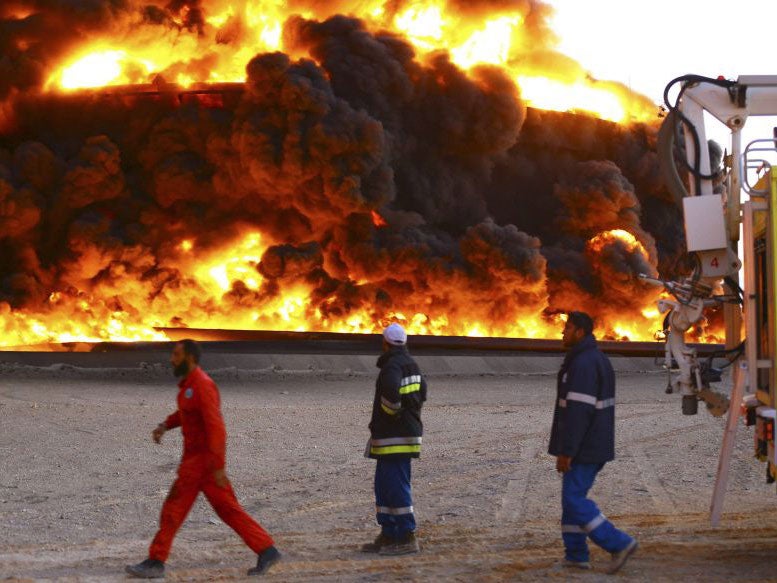Fire spreads across largest oil reserve in Libya as 20 soldiers die in clash between rival rebels
The fire was sparked by rockets launched from speedboats

A fire at the largest oil reserve in Libya has spread after a rocket hit the tanks on Thursday killing more than 20 soldiers.
The tanks in the al-Sidra export terminal were attacked by rockets launched from speedboats by Fajr Libya – or Libya Dawn – which killed four petrol guard soldiers until three of the group's vessels were damaged in air counter-attacks.
The conflict, that has been on-going for two weeks so far at the oil port, is between rival rebel groups which worked together to topple Muammar Gaddafi in 2011 but have been battling each other since August for political power and shares in the lucrative international oil trade.
"A tank was hit but the damage is limited," said an official from a security service allied to the internationally-recognised government, now operating from eastern Libya.
Up to 19 people were also killed in clashes reported from Sirte, a city situated around 120 miles (193km) west of al-Sidra, where a battalion were monitoring a power plant in the area.
The North African country has had two governments and parliaments since Libya Dawn seized hold of Tripoli by ousting a rival faction and forcing the prime minister, Abdullah al-Thani, to operate out of the east of the country with the elected House of Representatives.
Libya has been embroiled in a civil war between the recognised government and “Islamist” groups since the summer and at least 120,000 people have been driven out of their homes with more than 2,544 people having been killed during the conflict.
The fighting could lead to prosecutions for war crimes, UN high commissioner Zeid Raad al-Hussein said on Tuesday, as shelling of civilian areas was documented in a joint report by the UN human rights office and the UN Support Mission in Libya.
Join our commenting forum
Join thought-provoking conversations, follow other Independent readers and see their replies
Comments
Bookmark popover
Removed from bookmarks